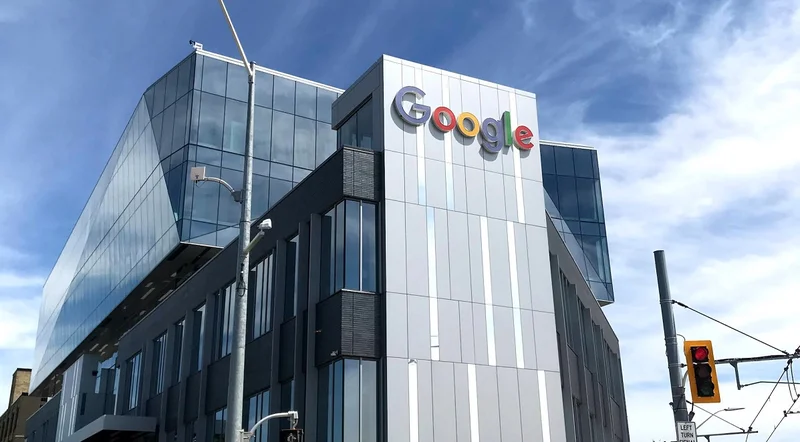Real-Time BNB Signal Analytics
Real-Time BNB Signal Analytics
The number flashed across trading desks with an almost gravitational pull: $256.72. For Alphabet, it wasn’t just another tick up; it was an all-time high, the culmination of a relentless surge that pushed its market capitalization into the rarified air of $3 trillion. In the quiet hum of server rooms and the frantic energy of investor calls, this figure stands as a monument to the company’s staggering dominance. But from where I sit, it looks less like a summit and more like a precipice.
This valuation isn’t a reward for past performance. It’s a forward-looking bet, a price tag that assumes not just continued success, but something far more precarious: flawless execution. The market has priced Alphabet for perfection, baking in a future where its AI ambitions face no serious setbacks, its cloud business never stumbles, and its core search monopoly weathers regulatory storms and user-behavior shifts without a scratch. That’s not a bullish thesis; it’s a fantasy.
To be clear, the underlying fundamentals are, on paper, extraordinary. The machine is firing on all cylinders. Google Cloud is the standout performer, posting revenue growth of 32% to $13.6 billion last quarter, with operating income more than doubling. This isn't just a side project anymore; it's a juggernaut. The company's vertical integration—from its custom Tensor Processing Units to its own fiber network—gives it a structural cost and performance advantage that competitors can't easily replicate. I've looked at hundreds of these filings, and the sheer scale of the recently announced $85 billion capital expenditure budget for 2025 is something else. It's a number that screams both immense confidence and immense pressure to deliver.
Then there’s the AI narrative. With Veo 3.1, Gemini for Business, and a massive $15 billion AI hub investment in India, Alphabet is making an aggressive, multi-front push to own the next decade of technology. It’s integrating AI into its search products to drive engagement, a defensive move that seems to be working, turning a potential threat from chatbots into a feature. The company’s core search business still holds an astonishing 90%-plus market share, a moat protected by the twin fortresses of Android and Chrome.
This entire operation is like a finely tuned Formula 1 car engineered for a perfect track on a sunny day. It possesses more speed, power, and technical sophistication than anything else on the grid. But what happens when the weather turns? What happens when a rival team introduces an unexpected innovation, or when the race stewards suddenly change the rules? A car built for perfection is often the most fragile when conditions become unpredictable.

This is where the data starts to diverge from the narrative. The most glaring red flag is the sentiment coming from the very analysts who cover the stock. According to TipRanks, the consensus rating for GOOGL is a "Strong Buy," backed by 29 Buy ratings versus just 8 Holds. Yet, the average price target tells a completely different story. It sits at $257.03.
Let that sink in. The consensus among Wall Street’s top minds is that the stock is a screaming buy, yet their own models project about 2% upside—to be more exact, the average target is just pennies above the recent all-time high of $256.72. This is a profound discrepancy. Why issue a "Strong Buy" for a stock you believe has already reached its peak valuation for the next 12 months? Is this a genuine belief in a long-term hold, or is it a reflection of the institutional pressure to remain bullish on a market titan?
This disconnect extends to the company’s most critical asset: search monetization. Google is currently experimenting with a significant redesign, grouping ads under a single "Sponsored Results" banner. More intriguing is the new "Hide sponsored results" option (which resets with every new query). J.P. Morgan’s top analyst, Doug Anmuth, argues this could strengthen monetization by improving user experience and click quality, a view he shared as J.P. Morgan Weighs In on Alphabet Stock as Google Reshapes Its Search Experience. The theory is that users who don’t want to see ads will hide them, filtering out low-value clicks and providing cleaner data for advertisers.
It’s a plausible theory. But it’s also a high-stakes gamble on user psychology. What happens if this new, prominent button trains a meaningful percentage of users to reflexively hide ads on every search? The assumption that this will only weed out low-intent users is just that—an assumption. We have no public data on the click-through rates of this new feature, and a negative outcome could directly impact the company’s primary revenue stream. This is precisely the kind of unforeseen variable that a "priced for perfection" valuation cannot withstand.
The problem with Alphabet isn’t the business; it’s the math. The current stock price has pulled forward years of expected good news, leaving no margin of safety. Investors are no longer paying for growth; they are paying a premium for the absence of mistakes. Every product launch must be a hit, every earnings report must beat expectations, and every competitive and regulatory challenge must be flawlessly navigated.
The risk isn't that Alphabet will suddenly collapse. The risk is far more mundane: that it will simply be a great company, not a perfect one. It will face a legitimate challenge from Microsoft in enterprise AI. It will see its ad revenue growth moderate in a tightening economy. A new feature might not land as expected. In a normal valuation environment, these are bumps in the road. At $3 trillion, they are seismic events. Buying the stock today isn’t a bet on innovation. It’s a bet that nothing, absolutely nothing, will go wrong. And that’s one of the riskiest bets on the market.